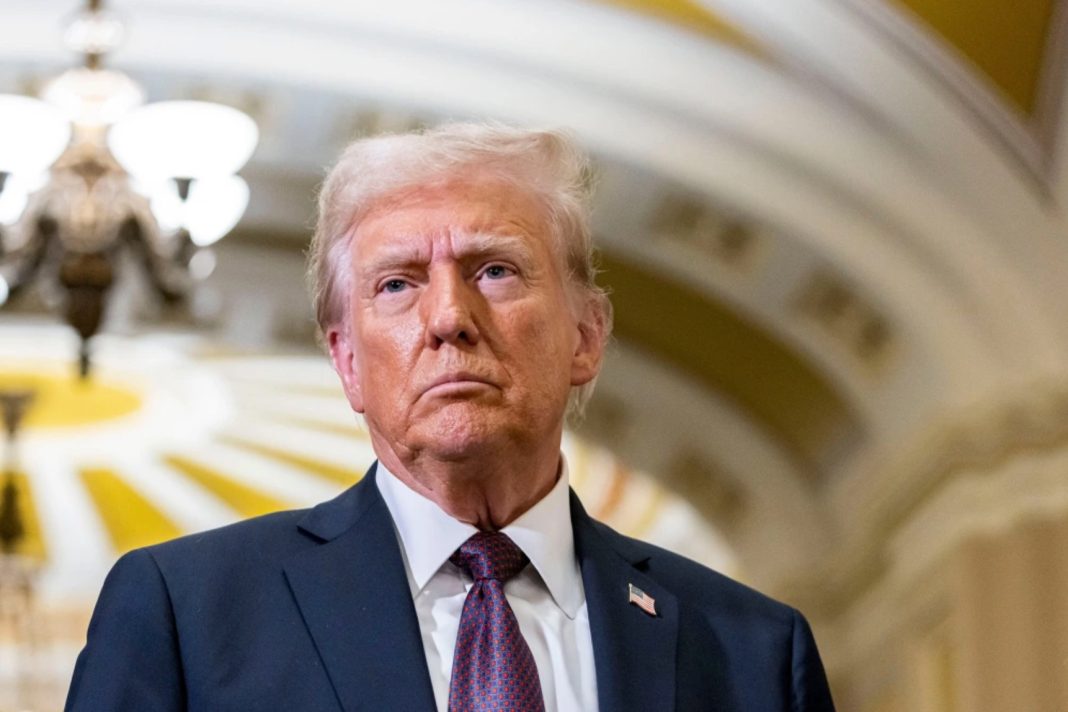WASHINGTON, USA — President Donald Trump has announced sweeping new tariffs on imports from nearly every country, escalating his global trade war in what he described as a move to reclaim America’s “economic independence.”
Speaking at a Rose Garden event on Wednesday, April 2, 2025, Trump declared a national economic emergency and unveiled a plan to impose a minimum tariff of 10% on all imports, with significantly higher rates for countries deemed “the worst offenders.”
Cambodian imports will face one of the steepest penalties, with a tariff rate set at 49%, according to materials displayed at the event.
“It’s our declaration of economic independence,” Trump said.
“Jobs and factories will come roaring back into our country, and you see it happening already.”
The 10% universal tariff will take effect on April 5, while the country-specific rates, which range well above that threshold, are set to begin on April 9.
The White House indicated there is still room for negotiation with affected countries before the customised rates are enforced.
Widespread Economic Implications
The sweeping tariffs are likely to affect the prices of a wide range of goods, from electronics to clothing, potentially worsening inflationary pressures that have already strained American households.
Businesses and economists have long called for clarity on Trump’s trade policy following his return to office last year.
Instead, the announcement marks a significant escalation in trade tensions at a time when the U.S. economy faces sluggish growth, high interest rates, and signs of consumer fatigue.
Trump administration officials defended the move, citing what they called “non-monetary barriers” that unfairly restrict U.S. exports.
These include foreign tax policies, labour practices, and currency manipulation, according to a senior White House official.
“As bad as the higher tariffs are that the rest of the world punishes us with, the higher non-tariff barriers are far worse,” the official said.
Trump held up a report by the U.S. Trade Representative at the event, citing it as evidence of unfair trade practices by America’s trading partners.
For now, the only exemptions to the new tariffs will apply to goods from Canada and Mexico that comply with the United States-Canada-Mexico Agreement, a deal brokered during Trump’s first term.
Potential for Retaliation
The announcement sets the stage for a new phase of trade negotiations, with many nations expected to retaliate against U.S. goods.
Analysts warn that the new tariffs could trigger a wave of countermeasures, further straining relations with key allies and trade partners.
Wednesday’s measures are the most extensive tariff package imposed by a U.S. president in decades and come at a time when many American consumers are grappling with the highest inflation in 40 years.
“This will undoubtedly drive up prices on everyday goods at a time when American families can least afford it,” said Mark Zandi, chief economist at Moody’s Analytics, in a televised interview following the announcement.
The White House said further details on the tariff policy will be released in the coming days.
This is a developing story and will be updated.







